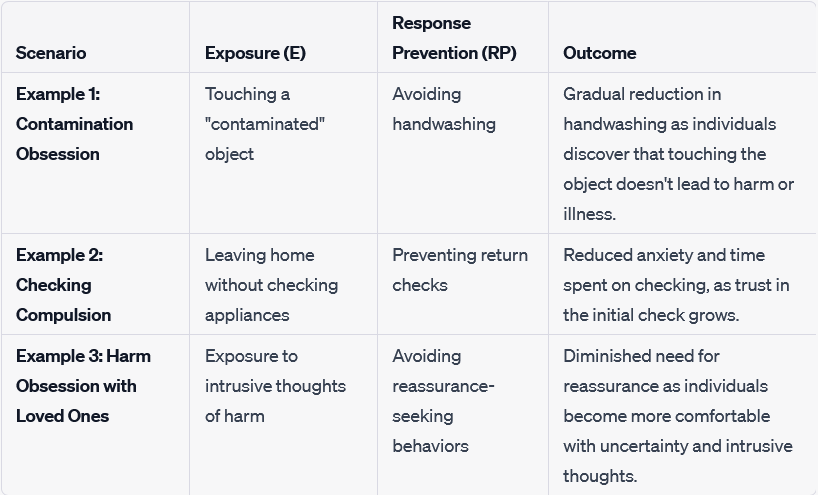How to treat Obsessive Compulsive Disorder (OCD)
- Dr. Shmaya Krinsky

- Sep 10, 2023
- 2 min read
Updated: Sep 16, 2023
Living with obsessive-compulsive disorder (OCD) can be incredibly tough. The constant intrusive thoughts and the need to perform repetitive behaviors can take a toll on daily life. But there's a highly effective method for managing OCD that answers the question of "How to treat obsessive compulsive disorder (OCD)?": Exposure and Response Prevention (ERP) therapy. In this article, we'll explore how ERP therapy focuses specifically on OCD by helping individuals become more comfortable with uncertainty.
Understanding ERP Therapy for OCD
ERP therapy is a specialized form of cognitive-behavioral therapy (CBT) designed to tackle the core features of OCD. It starts with the idea that people with OCD deal with distressing thoughts and then engage in rituals or routines to ease their anxiety. These rituals might bring temporary relief but ultimately keep them trapped in a never-ending cycle.
How ERP Breaks the OCD Cycle
ERP therapy has a two-pronged approach to free individuals from the grips of OCD. First, it exposes them to their fears (those distressing thoughts). Second, it stops them from performing their usual rituals or compulsive actions. The core concept of ERP is teaching people how to deal with anxiety and uncertainty without relying on their usual habits.
Practical Examples of ERP for OCD We can understand how ERP therapy works better with real-life examples:

Building Tolerance for Uncertainty
ERP therapy empowers people with OCD to confront and accept uncertainty. By gradually facing their fears and not giving in to compulsive behaviors, they learn that their worst fears usually don't come true. They realize they can handle the discomfort and anxiety that uncertainty brings.
A Closer Look at Contamination OCD
For instance, someone with contamination OCD may initially wash their hands compulsively after touching anything they consider dirty. ERP challenges this pattern by encouraging them to touch potentially "contaminated" objects without rushing to wash their hands. Over time, they realize that this doesn't lead to illness. Their ability to handle uncertainty grows, and they become less reliant on compulsive handwashing.
The Path to Recovery: ERP for OCD
In the case of checking compulsions, ERP therapy involves leaving the house without repeatedly checking things like locks or appliances. Each successful exposure builds their confidence in managing uncertainty. They learn to deal with their doubts without giving in to compulsions.
Conclusion: ERP Therapy Offers Hope To sum it up, ERP therapy is a structured and effective approach for managing OCD. It helps individuals confront uncertainty, break free from OCD's grip, and regain control over their lives. ERP offers a clear path toward embracing uncertainty and leading a more fulfilling life for those facing OCD. Click below to learn more about ERP and other services we offer.




Comments